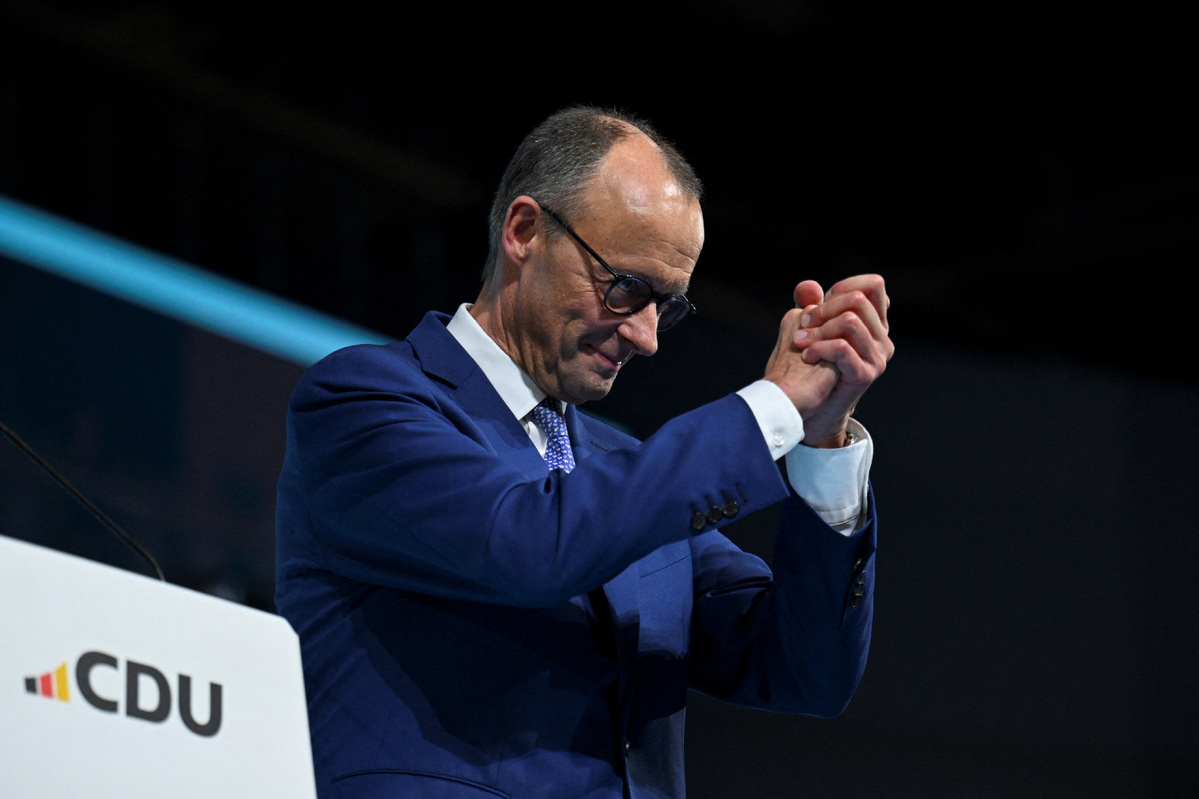
CDU party leader and top candidate for chancellor, Friedrich Merz, gestures during the 37. Federal Party Convention of the Christian Democratic Union (CDU) ahead of the upcoming 2025 general election in Berlin, Germany, Feb 3, 2025. [Photo/Agencies]
The man widely tipped to be the next leader of Germany has been forced to distance himself from the country's main far-right party after an unsuccessful attempt to tighten up immigration laws in the run-up to the federal election.
Friedrich Merz is the leader of the main conservative party, the Christian Democratic Union, or CDU, and is the favorite to replace incumbent Chancellor Olaf Scholz, of the Social Democrats, following voting on Feb 23.
Last week, the CDU broke the mainstream parties' so-called firewall of noncooperation with the far-right Alternative for Germany party, or AfD, as it relied on votes from AfD members in Germany's parliament, the Bundestag, to pass a nonbinding vote on tougher border and asylum rules.
A second binding vote on Friday, seeking to curb immigration numbers and family reunion rights, was lost, in part due to members of Merz's own party either abstaining or voting against it on principle because of the AfD link, and in the aftermath, mass public demonstrations against the AfD took place.
The firewall is a convention observed by mainstream parties in Germany against the far right, based on the experience of how the Nazis managed to take power in the 1930s, through the democratic system.
Speaking at the final CDU party conference on Monday before the election, Merz said there "couldn't be a bigger gulf between (the parties)" and there was no way he would have talks "with those who openly declare that they want to destroy my party".
"Nobody in this room has any doubts … and citizens need not have any doubts either, because my message was always very clear: we are not working with that party," said Merz. "That wasn't the case last week, and it won't be the case this week, next week, or the week after that. We won't tolerate them, we are not holding any talks with the AfD."
Merz's political opponents were scathing in their criticism of his actions. Scholz said, "We all lost because a taboo has been broken… I cannot trust Merz anymore", while Robert Habeck, the Green Party's candidate for chancellor, called the vote "an attempted blackmail" and "a disqualification for the office of chancellor".
The upcoming election in late February is taking place following the collapse of Scholz's coalition government at the end of last year, and immigration has emerged as a major issue, particularly for the AfD, whose support has grown in recent years beyond its original heartland in areas of the former state of East Germany.
AfD leader Alice Weidel called the defeat of the vote in the Bundestag "a dismantling of Friedrich Merz as a candidate for chancellor".